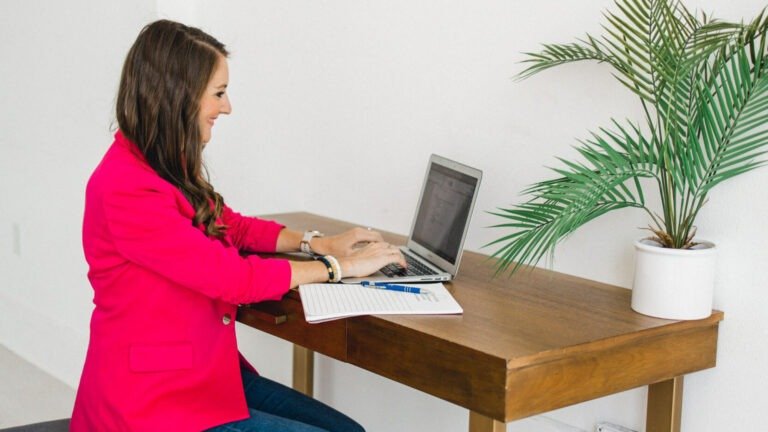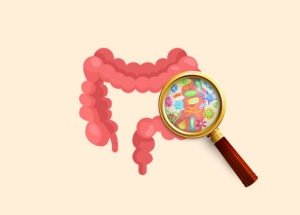Let’s face it, we do not live in a protective bubble. Our world is often designed around the workplace, whether it be a corporate office, healthcare setting, a construction site, school, or since covid, a makeshift office within the home. Success at work should not equate to gut setbacks, although the environment can lead to a feeling of helplessness over what and how to eat. The objective here is to provide you with tangible strategies to navigate gut health at work, regardless of the job or task at hand.
Navigating gut symptoms in the workplace may seem overwhelming but incorporating some of these simple tips can help you to feel prepared and be successful:
1) Be prepared with food to balance your blood sugar and keep you satisfied
Repeat after me, there is nothing wrong with a BYOL situation. That stands for “bring your own lunch”. It shocks me when I repeatedly hear clients say they are food shamed or called out for their own concoctions they bring to work. My best advice is to keep in mind that other people’s comments on your food is a reflection of how they perceive themselves, not of how they judge you. With a bit more confidence and edge in your step, the attention on your lunch will fade, and the topic will quickly change so you are no longer the A-lister in the spotlight. Furthermore, you may be surprised to realize that people also make comments because they are curious about this strategy for themselves. While at first it may appear like distaste, if someone is persistent with their questions, you may be crossing paths with them in the BYOL future.
2) Ask for support
This notion leads us to my second strategy at successful maintenance of gut health at work: finding an accountability partner-in-crime. This can be especially helpful if you are leaving the house and going into a different physical setting where you will be making choices all throughout the day amongst your colleagues. There is a sense of safety in numbers, and it has been scientifically proven that accountability partners can promote behavior change, adherence to new habits, and assist in breaking habits that aren’t helping you meet your gut health goals (not the TV show, but that would be cool).1
If you are an established employee, pick someone and share your goals. If it is someone you have developed a strong relationship with, you can get into more details and discuss your gut health specifically and your healing journey. If this person is still more of an acquaintance in your life, or someone you are still working toward developing a professional partnership with, you can keep it vague and inform them how you are diligently working on a positive meal approach and that you would appreciate their support. Define what support means to you, and express this to your colleague, they cannot read your mind! Does it mean asking your counterpart to refrain from asking too many questions? Does it mean you’d like them to take interest in what you brought for lunch today? Does it mean you’d like them to participate with you on some days? Vocalizing your needs should stem from a place of empowerment. This will provide you with a sense of control, deliberately putting yourself in the driver’s seat of not just your food, but indirectly your life.
3) Eat breakfast before getting your workday started
Kicking off your first meal of the day with a wholesome breakfast is essential to battling the infamous “hanger danger”. That hanger feeling is your blood sugar taking a roller coaster ride that is a little too much fun for the body to handle. The blood sugar swings can cause stomach bloating, digestive distress, mood swings, and an inability to focus on your job. The best way to approach this is by eating nourishing foods and leaving the starvation approach to the far distant past. A breakfast at a time that best suits you and your hunger cues should be filled with protein, fats, fiber, and color/complex carbohydrates. This blend will provide you with the required fuel for a successful day at work by keeping you stable and satiated. If your job starts early, I recommend packing a breakfast to eat on the go, or bringing a homemade smoothie for the road while on your commute.
4) Hydrate, hydrate, and hydrate!
My last, but very much not least important recommendation is to treat water the same as you treat that high-priority project: with the utmost respect and care. Water is just as critical as food, especially when it comes to gut health. H20 of course keeps the body hydrated, but it also helps prevent stools from drying out, making them easier to pass. A dehydrated body will not readily take to the bathroom, and this will ultimately contribute to a real setback in symptoms. When working a desk job, it is easier to grab water. I suggest using a bright colored water bottle, or one that somehow sparks joy, and keep it right in plain sight so you cannot forget to drink. For those that are on their feet most of the day, water intake can be a true challenge. To combat this, setting a timer on your phone every hour to build a new habit can be at first annoying, but eventually incredibly helpful. You can also make it a team building exercise or a competition between colleagues. Whoever drinks the most water by the end of the week gets a free coffee or lunch.
The simplicity of some of these strategies may almost seem belittling or dehumanizing, but with our fast-paced and dynamic lifestyles, these once natural health behaviors have gotten very lost in the shuffle. Ultimately, it is the tiny habits that truly instigate BIG change. Be patient and persistent, and with time the healing will come!
This article was written by gutTogether Health Coach Samantha Kane
- DAILEY R, ROMO L, MYER S, et al. The buddy benefit: Increasing the effectiveness of an employee-targeted weight-loss program. J Health Commun. 2018;23(3):272-280. https://doi.org/10.1080/10810730.2018.1436622. doi: 10.1080/10810730.2018.1436622.









